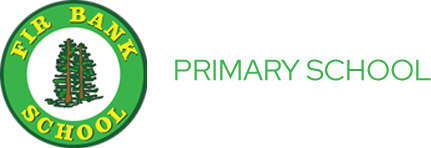Science
Intent
Our intention when teaching science is to inspire and enthuse children to develop their own curiosity and questioning through independence, exploration and hands on experiences. Our curriculum enables children to build on scientific understanding of Biology, Chemistry and Physics year on year, by interweaving scientific themes and revisiting key knowledge through a clearly planned science curriculum thus forming solid foundations on which to build new scientific understanding.
It is our shared vision that every child that passes through the doors at Fir Bank Primary School, takes away with them the scientific understanding and skills needed to answer questions about the world we live in, how to think critically and for them to be able to show resilience and curiosity to continue to question the world around them. Good teaching in science lights the fires of interest in all children (through ensuring an inclusive and engaging environment), promoting a commitment to learn and developing a deeper level of understanding.
‘I am neither clever nor extremely gifted, I am simply very, very curious’- Albert Einstein.
Implementation
In order to meet the aims of the National curriculum for Science and in response to the Ofsted Research review into Science, we have identified the following key strands:
- Scientific knowledge and understanding of:
- o Biology - living organisms and vital processes.
- o Chemistry - matter and its properties/
- o Physics - how the world we live in ‘works’.
- Working scientifically - processes and methods of science to answer questions about the world around us.
- Science in action - uses and implications of science in the past, present and for the future.
Topics such as Plants or Materials, for example, are taught in Key Stage One and studied again in further detail throughout Key Stage Two. Floor books are used to revisit sticky knowledge for each topic in year 1. This allows children to build upon previously taught knowledge which in turn increases their enthusiasm for the topics. Specialist vocabulary for topics is taught and built up, and effective questioning to communicate ideas and question the world around them is encouraged.
Children complete a pre-learning assessment at the beginning of a topic to showcase what they already know. This assessment will be repeated at the end of a topic to showcase what they have learnt and allows teachers a final opportunity to address any potential misconceptions that may have arisen during the topic.
In addition to this, each year group has an optional exploratory ‘Making connections’ unit that delves beyond the essential curriculum, assimilating prior knowledge and skills to evoke excitement and to provide an additional method of assessing scientific attainment.
Impact
As children progress throughout school, they will develop a deep knowledge, understanding and appreciation of the world around them.
Our children are constantly monitored through both formative and summative assessment opportunities. Each of our Science lessons includes opportunities for pupils to be assessed against the learning objectives and any relevant scientific enquiry skills. This allows children to be able to review their successes in each lesson and they are actively encouraged to identify their own areas of development. In addition to this, each Science unit has a unit quiz and a knowledge and skills catcher, which is used both at the beginning and end of the unit to provide a summative assessment.
We also measure the impact of our curriculum through the following non-assessment focused methods:
Learning walks and professional dialogue with teachers.
- Accessing children’s understanding of vocabulary before and after the ‘knowledge and skills’ have been taught through pupil discussions.
- Images and videos of the children’s practical learning.
- Interviewing children about their learning (pupil voice).
- Moderation staff meetings where pupil’s books are scrutinised and there is an opportunity for dialogue between teachers and to discuss the learning and teaching in their class.
